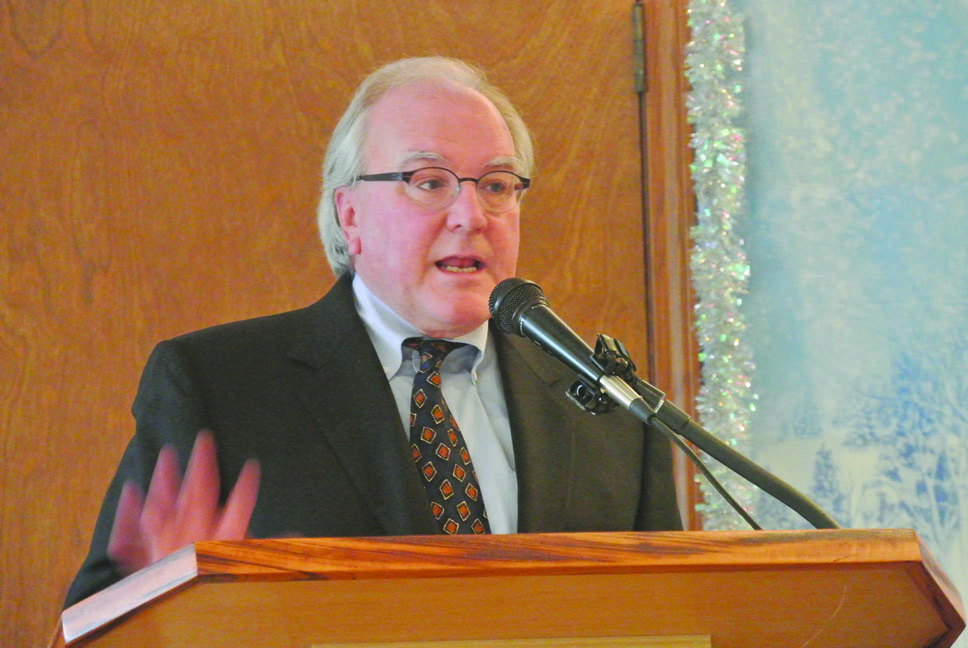PORT TOWNSEND — While it is impossible to predict the level of transportation funding to be allocated by the 2013 Legislature, local ferry cutbacks could be looming
“For the past two years we have provided two-boat service on the Port Townsend-Coupeville route during the ‘shoulder seasons,’” Assistant Transportation Secretary David Moseley told the Jefferson County Chamber of Commerce on Monday.
“It is possible that these times between the summer and winter schedules will be down to one boat.”
About 50 people heard the top state ferry system administrator address the meeting at the Port Townsend Elks Club.
Moseley said that nothing is certain and that cutbacks could be avoided if funding is secured.
By eliminating the second boat from the spring and fall seasons, plus decreasing ferry frequency, the run would lose 3,600 annual fares but save $486,000 for the year, Moseley said.
He said the long legislative session, scheduled between Jan. 14 and April 28, will reflect a period of transition for transportation funding.
There will be a change in leadership: In addition to Gov.-elect Jay Inslee, longtime Transportation Committee chair Sen. Mary Margaret Haugen, the Camano Island Democrat, is not returning to the Legislature and two Senate Democrats announced Monday that they plan to caucus with the Republicans.
“There will be a change in how the Senate is managed,” Moseley said.
“When it comes to ferry funding, that makes things a little more complicated and difficult — and this is happening at a time when there is a lot of discussion about a comprehensive transportation funding package that will provide some additional resources for the ferry system.”
For the past few years, Moseley has addressed the Jefferson County Chamber of Commerce twice a year, taking the opportunity to discuss the latest ferry strategy.
It is also at a time when he underscores what he has said in past meetings, such as the lack of sustainability of the ferry system.
“We have spent a billion dollars over the last 12 years to compensate for the shortfalls in the system,” he said.
“We can no longer continue to do this, until we have a sustainable funding source there will always be questions about what we can afford.”
Moseley said one long-term cost savings will originate from the retrofitting of ferries to run on liquefied natural gas instead of diesel.
This retrofit will cost $15 million per vessel and will take six years to show a return on investment, Moseley said.
“We are exploring this because of the increasing cost of fuel,” Moseley said.
“In 2000, our fuel cost was 11 percent of our budget; that has increased to 29 percent.
“With [liquefied natural gas], the eventual fuel cost will be half of that for diesel, and there is also an environmental advantage as it is a much cleaner burn.”
Moseley said that only vessels that have an additional 30 years of service remaining would be feasible candidates for the retrofit.
Moseley said that advertising has provided a welcome revenue stream for the ferries but there are limits in its use.
“Advertisers want to have a presence on the busier runs like Kingston-Edmonds, Bainbridge and Bremerton, but don’t have as much interest to be on the smaller runs,” he said.
“We could also make more money if we expanded where we accepted advertising outside of where we do now, like wrapping our ferries with ads like they do with buses, but that is not something I am willing to do.”
Jefferson County Reporter Charlie Bermant can be reached at 360-385-2335 or at charlie.bermant@peninsuladailynews.com.

